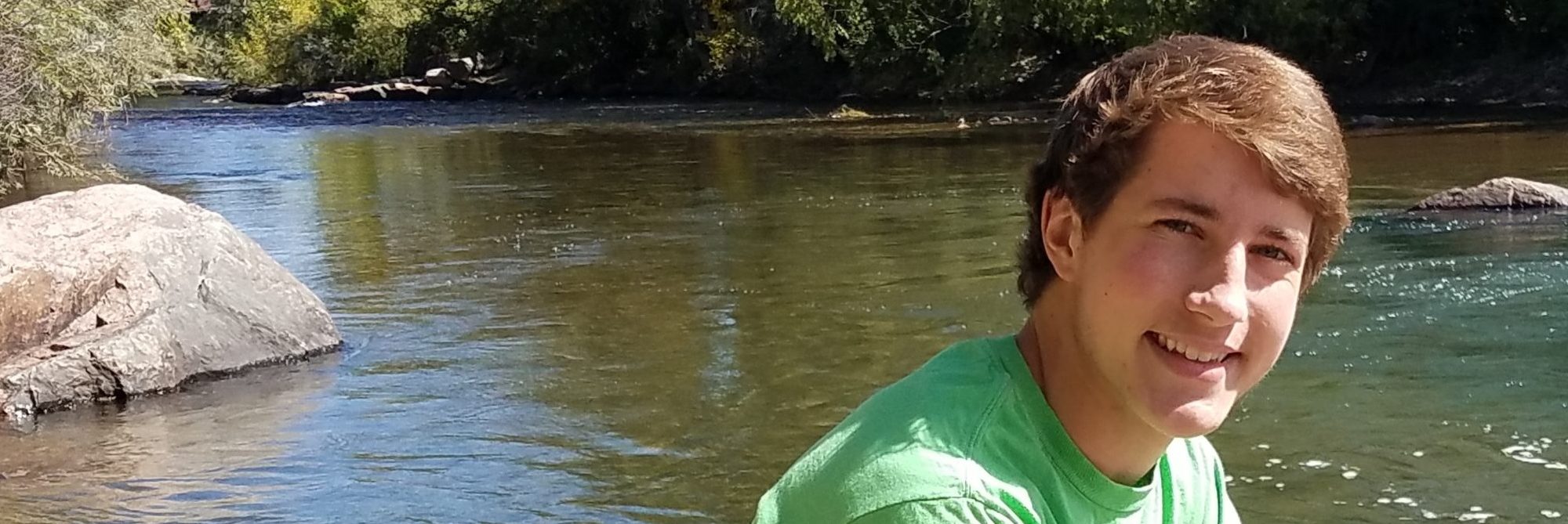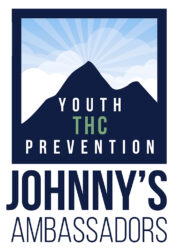By Laura Stack
In the days and weeks after Johnny died, several of his friends came to our house to visit. They expressed their love for Johnny and shared memories with us. They showed us such kindness by taking the time to talk with us. We expressed gratitude in return by letting them pick something that reminded them of Johnny—a sweatshirt he wore, a stuffed Ram that was on the dash of his car, his special gaming headset, or his longboard. We were heavy-hearted when they left but so grateful Johnny’s belongings could be of comfort to his friends.
The dictionary describes gratitude as “the quality of being thankful; readiness to show appreciation for and return kindness.” Johnny saw it this way:
“Simply put, expressing gratitude is showing you’re thankful for what you have, or a kind act. I believe it’s crucial because so often, we take what we have for granted. For example, there is no other you in this entire universe. The chances of you being born are 1 in (let’s just say, a lot), and that is incredible in itself, and worthy of appreciation by every single person. . . . we should be thankful for every little thing that we do have. I practice this by always showing my appreciation to those who support me, including my friends, family, and coworkers, and by being thankful that I have all the basic necessities — a roof over my head, food, water, a bed, and much more.”
Expressing gratitude makes you feel good. True gratitude isn’t just a buzzword; it’s a weapon to use against depression and stress. And it’s surprisingly easy to use, a kind of catalyst where just a tiny effort can positively transform your day.
It’s Not Just for Thanksgiving Anymore
Like our family, many American and Canadian families have a tradition where each person shares at least one thing they’re thankful for while sitting around the Thanksgiving table. It’s a cheerful process that generally results in smiles and laughter. Why do we only do this once a year?
Johnny went through this exercise as a school assignment just three months before he died. He had just landed a new job at PetsMart, moved into our condo down the street, started a new class, and got a new puppy. His instructor told them for five days to record the top five things they were grateful for. Here is what he wrote:
8/24/19:
Pool next to where I live
Gym next to where I live
Laundry machines I my place
Family
Society
8/22/19:
Brushing my teeth
Shelter
Have enough to afford food
Using my brain; retention and memory
Clothes to wear
8/22/19
First day of work went well
Sunshine
Had fun playing video games
My phone
Running water
8/21/19:
Sleeping in my bed
Balcony I can chill on
Listening to music
Enjoying showers
Driving my car
8/20/19:
Was able to present without too many nerves, bounds better than I used to be
Got an A on my presentation
Made it home safe from class
My puppy went on his puppy pad like he’s supposed to instead of the floor
Having a class to go to in the first place, being able to go to college
Here is how he debriefed his assignment afterward:
“Overall, I think this exercise that was assigned to us for the purpose of making us think about, be conscious of, and appreciate the little things that we often take for granted, was entirely enlightening for me. There were so many ideas I had for things I was grateful for on a daily basis, more than just the ones I wrote down, and I think that actually taking the time to reflect on things that might otherwise not be noticed, just goes to show how many things we have to be grateful for that we should be mindful of. Often, my life cruises by without thinking or acknowledging the things that I find joy in or assign significance to, or even less, the things I would typically define as necessities. Nevertheless, I have found gratitude to be an extremely important value to me, especially in my recent years, and even was one of my core values that I shared with the class in my values presentation.
I mentioned in my slideshow an encounter that I had about a year ago with a homeless man named Troy that helped shape me and really assigned, emphasized, and prioritized gratitude as one of my core qualities. To summarize, Troy was a dirty, jobless, homeless man that I had coincidentally met outside of voodoo donuts. He was shoeless when I first walked up to him, but after listening to his story of going from living a fulfilling life with a steady job and a wife to losing everything one day suddenly, he inspired me to start showing gratitude for everything, and to give him the shoes off of my feet as a gift for sharing with me this valuable lesson, which I internalized.
Johnny was the real role model to me here, because meeting this gentleman, and getting to know him a little, made him realize all the good things he had. He practiced his gratitude by literally giving the man the shoes off his feet. I’m not sure if Johnny realized it, but this kind act expressed what he felt thankful for—precisely in line with the value of gratitude. Johnny concluded:
“The lesson is: It doesn’t have to be the grandiose things of life and our material possessions that we should show the most gratitude for. Regarding the most basic of things which many of us own or even simple day to day occurrences, thinking about and expressing gratitude in these situations which we often never even think about is the most rewarding. Overall, this activity has been a great experience and reflecting on it, I think it helped reinforce the notion that I previously had to be grateful for all of the small things in life.”
Practicing gratitude, he points out, also puts things in perspective. Plenty of people in the world have it worse than you do, so do your best to enjoy what you have.
Gratitude in Action
You don’t have to start big. Just think of one good thing that’s happened to you at the end of each day, and dwell for a moment on how it made you feel. Some people maintain a gratitude journal, where they keep track of the things that make them happy every day. Journaling your gratitude provides surprisingly good therapy, helping not just to plant the seeds of a positive attitude, but nurturing it as it grows. Even on your worst days, you can usually find something to praise: a satisfying meal, a convenient empty seat on the subway, a smile from a friend, even a fun TV show. It may feel good to vent and complain, but that may prove toxic to others if you don’t use it for constructive solutions. Gratitude shortstops negative feelings and relieves stress at least as effectively as complaining, especially if you can get a laugh out of it.
This article concludes our exploration of Johnny’s Five Values, the principles by which my oldest son lived his life before, tragically, his delusion turned on him. I have found comfort in his 5 Values and hope you have, too. So, maintain and express Altruism, Patience, Conviction, Enthusiasm and Gratitude—or their equivalents in your life—on a regular basis, especially when you feel like the punching bag of life.
You’ve heard the saying: “Into every life a little rain must fall.” Of course, what happens to you in life isn’t as important as how you react to it. Johnny’s Five Values can help you with this goal. Anyone can apply them, and they offer a ready-made umbrella you can open against the rain.
I’m grateful for your support and friendship and for being one of Johnny’s Ambassadors!



Hi Laura,
That’s great about the teenage focus group.
I feel that one of society’s problems in general, is that we are not being taught to think in a clear, concise manner – that we can’t tell the difference between genuine facts, and opinions and assumptions.
I don’t know if this is a deliberate, conscious act, but it is how pot promoters fool innocent kids and teens.
– – – – –
I also feel gratitude is very important.
There’s nothing wrong with feeling pride in one’s accomplishments, but it’s important to acknowledge the role of others we’ve met along the way. Even a few kind and supportive words can make a difference.
– – – – –
I’ve signed up for Friday.
Though I’m 73 (and a half), I’m still pursuing my vision as a composer and pianist. In fact, because of COVID-19 and other issues, I’m redefining that vision somewhat, and preparing for what I think is a “new world” that is opening up.
Though it’s hard to see because we’re in the middle of it, I know because of my interests in history that it is happening.
I’m looking forward to hearing what Carey Conley has to say.
Yours,
George
Hi, George! I agree – we must work as hard as we can to counter the incorrect education the pro-pot industry uses to target our children to become their next generation of addicts.
Thank you for writing! We’ll “see” you on Friday with Carey Conley on vision and how to help our children have one!
Appreciate your support.